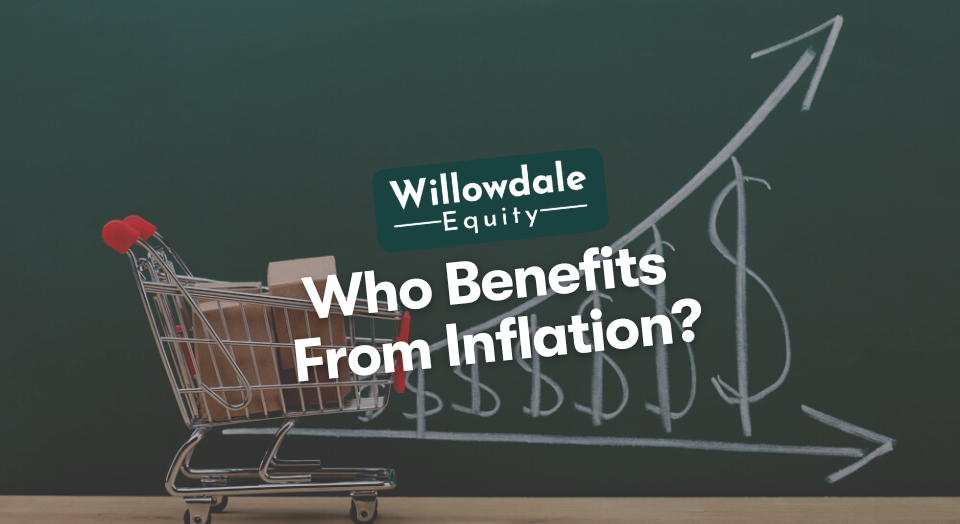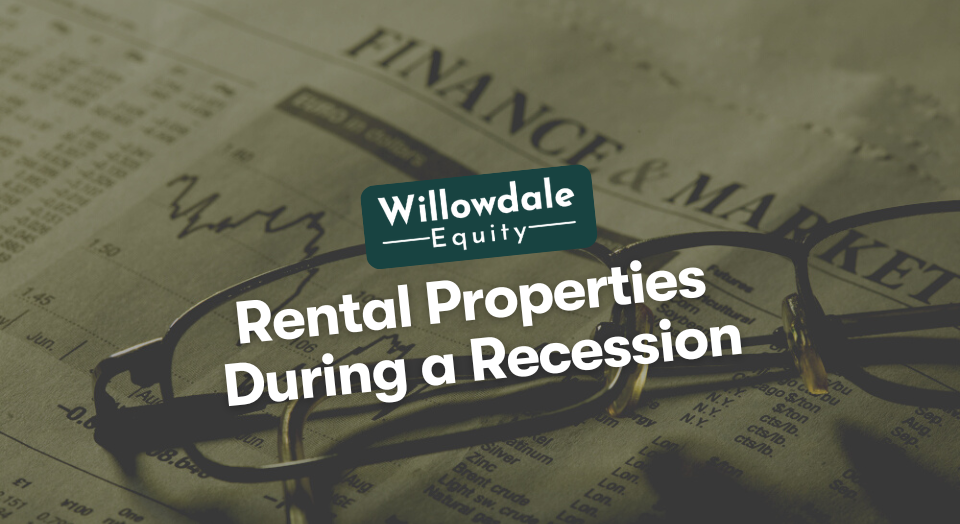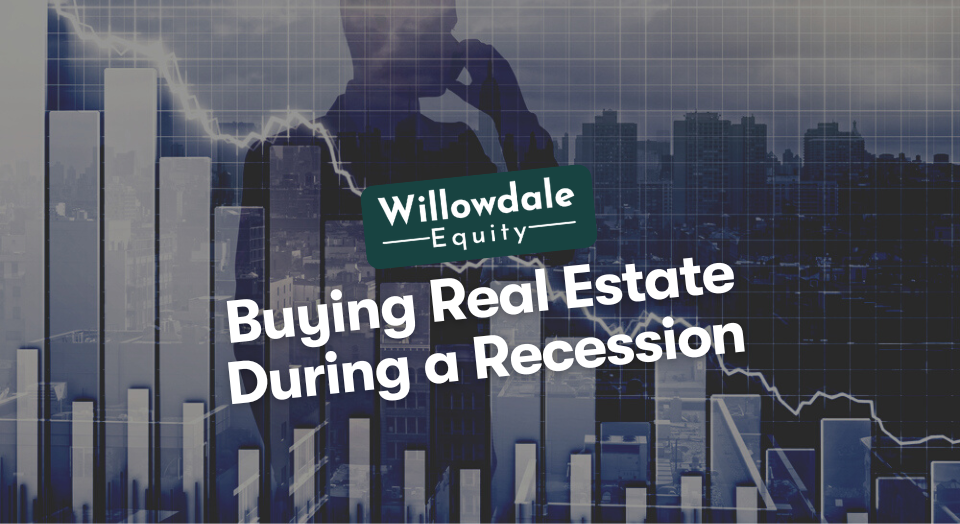
Who Receives Some Benefits From Inflation?
This article is part of our guide on buying real estate during a recession, available here.
An ongoing increase in price is referred to as inflation. As a result of inflation, money will have less purchasing power than it did previously. You might wonder, “Does anyone gain from inflation?” if you always feel like you’re losing money in times of high inflation.
Inflation is not bad for everyone; some people gain from it. So, who receives benefits from inflation? This article will explain who profits from inflation and who loses from it. We will also provide an overview of the concept of inflation and how it is measured. The idea behind all this is to help you better understand inflation and determine if you stand to benefit or lose from it.
Key Takeaways
-
The rate at which the prices of goods and services in a country are growing is known as inflation. The effects of cost-push inflation, which raises the cost of necessities like food, can be detrimental to society.
-
During periods of high inflation, property investors’ and landowners’ assets can increase considerably. Due to its scarcity, the land is an asset that perpetually increases in value. In addition, because land holds value continuously, most people rush to buy it when the inflation rate rises.
-
For individual consumers and major enterprises like manufacturing, energy is necessary.
-
While some people might choose not to eat out or buy more expensive food options, food companies and the agricultural sector both gain from inflation.
Inflation Explained
The rate at which the prices of goods and services in a country are growing is known as inflation. The effects of cost-push inflation, which raises the cost of necessities like food, can be detrimental to society.
Nearly all goods and services can experience inflation. Once inflation is pervasive across an economy, both consumers and companies share a common fear about the possibility of future inflation.
The central bank tracks inflation in developed countries, such as the Federal Reserve in the U.S. If prices rise too quickly or by too much, the Fed alters monetary policy to counteract inflation, which has a target of about 2%.
So, how can you measure inflation in a country? We will discuss this in the next section.
How Is Inflation Measured?

As it decreases the worth of the savings today, inflation might be a reason for anxiety. Individuals’ buying power is reduced by inflation, which also makes retiring difficult.
Many factors in an economy can affect how much products cost or rise. Rising manufacturing costs or increased consumer demand are the two main causes of inflation.
The government calculates inflation by comparing the current prices of products and services to historical prices. However, measuring inflation is not as simple as it appears. So, how does the process of measuring inflation in a country work? We will use the example of the U.S. to explain this.
The most commonly cited indicator of inflation is the Consumer Price Index (CPI), produced by the Department of Labor (BLS).
93% of Americans live in cities. Hence the primary CPI (CPI-U) is intended to assess price changes experienced by urban consumers. But since it’s an average, it doesn’t account for any specific consumer’s experience.
Each month, eight thousand products from a fixed basket of services and goods that represents what Americans consume in their daily lives—from gasoline at the pump and fruits at the supermarket to cable TV fees and visits to the doctor are used to calculate the CPI. The Consumer Expenditures Poll, a survey of American families, is used by the BLS to determine which goods belong in the basket and the amount of weightage to give to each item.
Prices are weighted based on how significant they are to the typical consumer. Changes in the cost of chicken, for example, have a higher impact on the CPI than changes in the price of tofu because Americans spend more on chicken.
So, does this increase in the price of goods and services benefit anyone? Yes, inflation has some benefits for a specific category of people. We will look at who gains from inflation next.
Who Gains From Inflation?
Consumers who must pay more in practically every part of their lives see a slight advantage from inflation. Still, intelligent investors can limit their losses by spotting industries that might profit from them.
For instance, investors in energy companies may profit if the price of energy stocks rises due to higher gas prices. The following are some people who typically win during periods of high inflation:
1.) Real Estate Landlords

During periods of high inflation, property investors’ and landowners’ assets can increase considerably. Due to its scarcity, the land is an asset that perpetually increases in value. In addition, because land holds value continuously, most people rush to buy it when the inflation rate rises.
Landlords benefit from a steady source of revenue from their tenant base. They can adjust their leases with those tenants annually to adjust pricing to the current rise in costs to operate the property due to inflation.
2.) Borrowers with Fixed Rate Debt
You can profit from inflation if you have sizable fixed-rate debt, such as a mortgage, car loan, or personal loan. It ensures that you won’t be paying off your debt with money that was once worth more. Since inflation is the deflation of the dollar’s value and purchasing power, debt is technically depreciating in an inflationary environment.
Furthermore, a fixed-rate loan’s interest rate won’t fluctuate with the market. Your interest rate may be significantly below current interest rates that have been impacted by inflation, depending on the conditions of your loan and the date of origination. In simple terms, higher inflation rates may result in longer-term savings on your fixed-rate obligations.
3.) The Energy Sector
For individual consumers and major enterprises like manufacturing, energy is necessary. Since consumers and producers must buy power regardless of the impacts of inflation, the energy industry is a defense mechanism against rising prices.
Providers can simply raise prices to protect themselves and their investors against the increases in the price level. It also allows them to maintain profit margins.
4.) The Food Industry
While some people might choose not to eat out or buy more expensive food options, food companies and the agricultural sector both gain from inflation. Food and other consumer staples are protective industries against unanticipated inflation because there is always a market for their goods. Since the food industry may witness economic growth alongside unexpected inflation, these businesses can benefit more as inflation increases.
Let’s explore who stands to lose from rising prices now that we know who benefits from it.
Good Read: What Assets Do Well In Stagflation?
Who Losses from Inflation?
People who don’t have a consistent source of income are typically more susceptible to rising inflation. Let’s look at some people who are most likely to lose money from inflation.
1.) Renters

In periods of rising inflation, renters take on the brunt of inflation which is reflected in their rent.
2.) Low-Income Earners
If you were already living paycheck to paycheck, your situation has worsened since your wages no longer buy as much as they did before inflation.
Many people have indeed experienced rising wages during the COVID-19 pandemic. However, the typical salary for low-wage workers remains below average, especially those in hospitality and food services.
3.) The Average American
The average American with no physical assets such as land or property, limited savings, lives paycheck to paycheck, and has no other investments to counter the rising inflation stands to lose out the most from it.
We have covered all bases regarding who benefits from inflation and who loses from it. However, a few frequently asked questions (FAQs) regarding who gains from inflation need to be answered. That is what we will be doing next.
Frequently Asked Questions about Who Gains From Inflation
While existing homeowners with fixed-rate mortgages typically fare better during inflationary periods, first-time homebuyers can lose out.
Housing costs could grow along with inflation. Finding an affordable mortgage may become more complicated if inflation rates rise. You can also discover that your savings have lost value and that you cannot pay the down payment on a house.
Generally, yes, as a borrower is borrowing dollars that are worth less in the future. Inflation may raise the cost of your debt if you have variable-rate obligations like a home equity line of credit (HELOC). It is because variable-rate loans are frequently based on a market index or other type of financial standard. Interest rates often follow suit when the index rises, as do your monthly payments.
Who Receives Benefits from Inflation — Conclusion
Knowing who benefits from inflation and who losses from it helps you to better prepare for the times of high inflationary effects. You can minimize the financial impact of high inflation while also gaining from it by borrowing loans with fixed interest rates and investing in real estate, the energy sector, and the food industry.
Join the investors club at Willowdale Equity to access private value-add multifamily real estate investments that provide a solid hedge against inflation.
Sources:
- Investopedia, “What Causes Inflation and Who Profits From It?”
- Brookings, “How does the government measure inflation?”
- NASDAQ, “Who Benefits From Inflation?”
Interested In Learning More About PASSIVE Real Estate Investing In Multifamily Properties?
Get Access to the FREE 5 Day PASSIVE Real Estate Investing Crash Course.
In this video crash course, you’ll learn everything you need to know from A to Z
about passive investing in multifamily real estate.
We’ll cover topics like earned income vs passive income, the tax advantages, why multifamily, inflation, how syndications work, and much much more!




